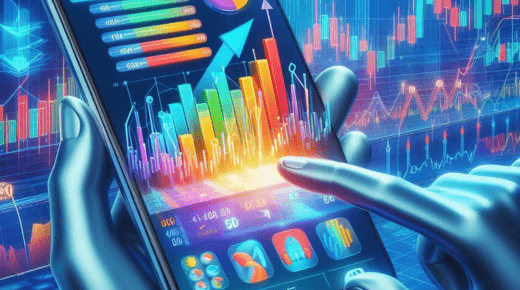
Understanding Futures Trading
Futures trading involves the buying and selling of contracts for a specified asset at an agreed-upon price, with the transaction set to occur at a future date. These contracts are standardized and traded on exchanges, providing investors with the opportunity to speculate on the price movements of commodities, stocks, currencies, or other financial instruments. By entering into a futures contract, traders are essentially agreeing to buy or sell the underlying asset at the predetermined price on the specified future date.
One key aspect of futures trading is leverage, which allows traders to control a large position with a relatively small amount of capital. This can amplify both potential gains and losses, making futures trading a high-risk, high-reward endeavor. It is crucial for traders to understand the mechanics of futures contracts, including how margin requirements, expiration dates, and settlement procedures work, in order to effectively navigate the futures market and make informed investment decisions.
Understanding Options Trading
Options trading is a financial instrument that provides investors with the flexibility to buy or sell an asset at a predetermined price within a specified time frame. A call option gives the holder the right, but not the obligation, to purchase an asset at a set price, while a put option grants the holder the right to sell an asset at a predetermined price. This ability to control an asset without actually owning it can offer traders the opportunity to profit from market movements in a more cost-effective manner.
One key concept in options trading is the concept of premiums. The premium is the price paid by the option’s buyer to the option’s seller for the rights conveyed by the option. It is influenced by factors such as the underlying asset’s price, time remaining until the option expires, market volatility, and the option’s strike price. Understanding how premiums are calculated and the factors that can impact them is essential for making informed decisions in options trading.
Options trading is a financial instrument that provides investors with the flexibility to buy or sell an asset at a predetermined price within a specified time frame. A call option gives the holder the right, but not the obligation, to purchase an asset at a set price, while a put option grants the holder the right to sell an asset at a predetermined price. This ability to control an asset without actually owning it can offer traders the opportunity to profit from market movements in a more cost-effective manner. One key concept in options trading is the concept of premiums. The premium is the price paid by the option’s buyer to the option’s seller for the rights conveyed by the option. It is influenced by factors such as the underlying asset’s price, time remaining until the option expires, market volatility, and the option’s strike price. Understanding how premiums are calculated and the factors that can impact them is essential for making informed decisions in options trading. If you are interested in options trading, consider consulting with a Share Broker to guide you through the process.
Key Differences Between Futures and Options
Futures and options are both derivative financial instruments traded on regulated exchanges. One key difference between the two lies in their inherent nature. Futures require an obligation to buy or sell the underlying asset at a specified price in the future, while options provide the buyer the right, but not the obligation, to carry out the transaction at a predetermined price within a set period.
Another crucial distinction stems from the pricing structure of futures and options. The value of a futures contract is tied directly to the underlying asset, resulting in a direct relationship between the price movements of the asset and the futures contract. In contrast, options’ values are influenced by a combination of factors, including the price of the underlying asset, the volatility of the market, and the amount of time until expiration.
Benefits of Trading Futures
One of the key advantages of trading futures is the leverage they offer. Futures contracts typically require only a fraction of the total value of the contract to be deposited as margin. This allows traders to control a larger position with a smaller amount of capital, amplifying potential returns.
Another benefit of trading futures is the ability to hedge against price fluctuations. Businesses that rely on commodities or raw materials can use futures contracts to lock in prices and protect themselves from unexpected price changes. This can help companies manage their production costs and reduce the impact of market volatility.
Benefits of Trading Options
Options trading offers several benefits for traders seeking to diversify their investment portfolio. One key advantage is the limited risk exposure associated with options. Unlike trading stocks outright where losses can accumulate indefinitely, options traders can only lose the premium they paid for the option contract. This inherent risk limitation can provide a sense of security and control in volatile market conditions.
Additionally, options trading allows investors to leverage their capital more effectively. By purchasing options contracts instead of the underlying asset itself, traders can potentially gain exposure to a larger position size with a smaller upfront investment. This magnified leverage can amplify potential returns, making options trading a popular choice for those seeking higher profit potential while managing risk efficiently.
Risks Associated with Futures Trading
One of the primary risks associated with futures trading is the high level of leverage involved. While leverage can amplify potential profits, it also magnifies losses. Traders must be aware that even a small adverse price movement in the underlying asset can result in significant financial losses.
Another risk to consider in futures trading is market volatility. Prices of futures contracts can fluctuate rapidly due to various factors such as economic indicators, geopolitical events, and natural disasters. Traders need to be prepared for sudden price swings and potential margin calls that may require additional capital to cover losses.
One of the primary risks associated with futures trading is the high level of leverage involved. While leverage can amplify potential profits, it also magnifies losses. Traders must be aware that even a small adverse price movement in the underlying asset can result in significant financial losses. Another risk to consider in futures trading is market volatility. Prices of futures contracts can fluctuate rapidly due to various factors such as economic indicators, geopolitical events, and natural disasters. Traders need to be prepared for sudden price swings and potential margin calls that may require additional capital to cover losses. For those looking to navigate the risks of futures trading, using a reliable f&o trading app can provide valuable tools and resources to make informed decisions.
Risks Associated with Options Trading
Options trading, while providing traders with the potential for high returns, also comes with its fair share of risks. One of the primary risks associated with options trading is the risk of losing the entire investment. Unlike stocks, where losses are limited to the initial investment amount, options contracts have expiration dates and can become worthless if the underlying asset price doesn’t move in the anticipated direction.
Another significant risk of options trading is the risk of volatility. Options prices are influenced by factors such as the underlying asset price, time to expiration, and implied volatility. Sudden and unexpected changes in these factors can lead to significant price swings in options contracts, resulting in both profits and losses. Traders need to be mindful of this risk and employ strategies to manage volatility effectively in their options trading endeavors.
Factors to Consider Before Trading Futures
Before diving into futures trading, it is crucial to understand and assess your risk tolerance. Futures trading involves leverage, meaning that you can control a large contract with a relatively small amount of capital. While this can amplify gains, it can also magnify losses, leading to significant financial risk. It is essential to evaluate how much risk you are comfortable with and set appropriate stop-loss orders to manage potential losses effectively.
Moreover, before engaging in futures trading, it is important to have a clear strategy in place. Define your trading goals, whether they involve speculation, hedging, or arbitrage. Establishing a solid plan will help guide your decision-making process and prevent impulsive trades driven by emotions. Additionally, consider the time commitment required for futures trading, as monitoring the markets and staying informed about economic factors impacting prices is essential for success in this fast-paced environment.
Factors to Consider Before Trading Options
Options trading can be complex and risky, so it is essential for traders to consider certain factors before diving into this market. One crucial aspect to contemplate is the level of risk that one is willing to undertake. Options trading can lead to substantial financial losses, so it is vital to assess risk tolerance and establish a risk management strategy before engaging in this type of trading.
Another factor that traders should consider before trading options is their investment goals and objectives. It is important to have a clear understanding of why one is entering the options market and what they aim to achieve. Whether it is hedging against market volatility, speculating on price movements, or generating income through premiums, aligning trading activities with investment goals can help traders make informed decisions and navigate the options market more effectively.
Options trading can be complex and risky, so it is essential for traders to consider certain factors before diving into this market. One crucial aspect to contemplate is the level of risk that one is willing to undertake. Options trading can lead to substantial financial losses, so it is vital to assess risk tolerance and establish a risk management strategy before engaging in this type of trading. Another factor that traders should consider before trading options is their investment goals and objectives. It is important to have a clear understanding of why one is entering the options market and what they aim to achieve. Whether it is hedging against market volatility, speculating on price movements, or generating income through premiums, aligning trading activities with investment goals can help traders make informed decisions and navigate the options market more effectively. For traders looking to trade on the go, utilizing a mobile trading app like mobile trading app can provide convenience and flexibility in managing their options trades.
Tips for Beginners in Futures and Options Trading
For beginners venturing into futures and options trading, it is essential to start with a solid understanding of the market and the products they are interested in trading. Take the time to research and educate yourself on how futures and options work, their potential risks, and rewards. Utilize the vast resources available online, such as tutorials, articles, and online courses to enhance your knowledge base.
Additionally, before making any trades, ensure you have a well-defined trading strategy in place. Set clear goals, establish risk management techniques, and stick to your predetermined plan. Emotions can often cloud judgment in trading, so it is crucial to remain disciplined and avoid impulsive decisions. Remember, consistency and patience are key virtues in the world of futures and options trading.

